News
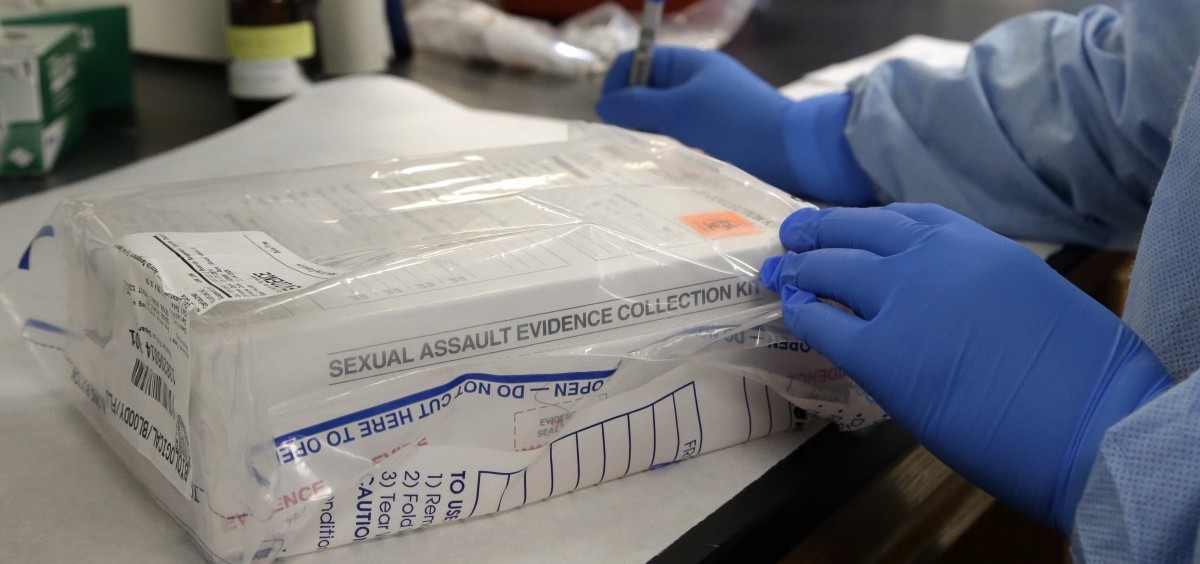
Athens Rape-Kit Tests Reveal Matches to Database
< < Back to ohio-attorney-general-makes-progress-on-rape-kitsAs many as seven Athens area rape cases are one step closer to solving after DNA database matches resulted from rape-kit testing by the Attorney General’s Office.
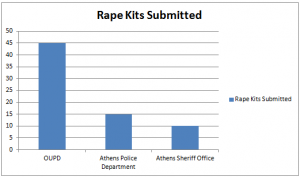
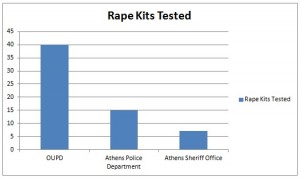
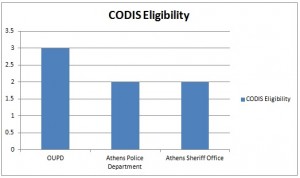
The results come from a total of 70 rape kits submitted by the Ohio University Police Department, Athens Police Department, and Athens County Sheriff’s Office for testing by Attorney General Mike DeWine. Athens sent in the most kits from Southeast Ohio.
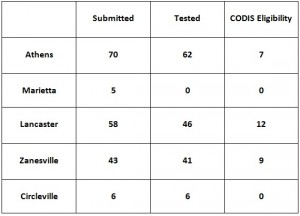
Data from rape-kit testing are submitted to the Combined DNA Index System for possible matches to existing DNA profiles.
The effort to tests kits dates back to 2011 when Attorney General Mike DeWine learned of thousands of untested kits in local police departments in Ohio.
DeWine recommended agencies submit kits from old cases believed to be connected to crimes.
Nearly 9,000 kits were voluntarily submitted between 2011 and 2015, before senate bill 316 went into effect, requiring the submission of rape kits. Since the passage of the law, an additional 4,000 kits have been submitted for testing.
Jill Del Greco, Public Information Officer for DeWine’s office, said the Attorney General created a protocol for testing the kits to avoid a backlog in their analysis.
“The Attorney General made a separate unit of forensic sciences who just focused on these older kits,” she said. “That way when you have a sexual assault that happens now, that kit is going to be tested the same rate whether or not all of these old kits came in or not.”
The number of rape kits tested per month varies, but peaked around 300. While the role of the Attorney General’s Office is to test the kits, it’s up to local police agencies how they’ll deal with the resulting information.
“If the agency submitted kits from Athens, we would take the results and return the information to the local law enforcement agency,” Del Greco said. “It is up to them what they do with it, they don’t have to report back to us if they made an arrest.”
All rape cases resulting from rape-kit testing are prosecuted at the local level. Law enforcement also determines if there is enough evidence to prove a kit was connected to a crime. According to Del Greco, DNA isn’t enough to charge a person with rape.
“You have to go out and investigate these cases and talk to the victim, establish if the DNA is from someone who sexually assaulted the person or possibly that person was a boyfriend at the time and is a consensual partner,” she said.

